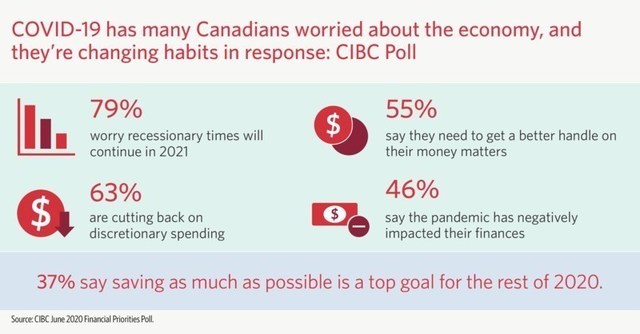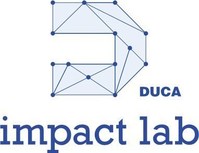Lendlease and CPP Investments Reinforce Their Build-to-Rent Partnership

Canada Pension Plan Investment Board
LONDON, UK, June 26, 2020 /CNW/ - Lendlease and Canada Pension Plan Investment Board (CPP Investments) are continuing to strengthen their partnership in the Build-to-Rent sector in the United Kingdom. Today both parties confirmed that they have agreed another £85m of investment to help fund 123 new Build-to-Rent homes at Elephant Park in south London.
This is the second major investment between the organisations this year. In February, they announced an £80m investment to begin construction of an 18-storey building with 118 Build-to-Rent homes at Elephant Park.
Build-to-Rent continues to establish itself as an institutional real estate sector in the UK, and the partnership between Lendlease and CPP Investments was first announced in 2018 when they agreed an initial target of investing £1.5 billion in the sector. Lendlease will develop, construct and manage the Build-to-Rent homes on behalf of the partnership. With this latest investment, CPP Investments and Lendlease will each invest 50%.
Victoria Quinlan, Managing Director for Investment Management Europe at Lendlease, said: "Partnering with CPP Investments builds momentum in our Build-to-Rent platform and provides much needed housing in London. The investment demonstrates a vote of confidence not just in the Build-to-Rent sector in London, and the Elephant Park development, but in the attractiveness of the UK as a global investment destination. We highly anticipate the successful launch of our first Build-to-Rent homes at Elephant Park later this year."
Andrea Orlandi, Managing Director, Head of Real Estate Europe, CPP Investments, said: "The Build-to-Rent Sector in the UK continues to be supported by long term trends, particularly in London and other major UK cities. Private rentals are an increasingly attractive and flexible option for households. The Elephant Park project continues to move ahead towards completion for the first phase, and our, and our latest financial commitment will help to progress this landmark regeneration project. It also extends our positive, broader relationship with Lendlease, which seeks to identify further investment and regeneration development opportunities in the UK."
Today's announcement means that the partnership is now planning to provide over 900 Build-to-Rent homes at Elephant Park. Construction is well underway on the first two buildings and later this year the partnership is expected to confirm timings for their completion and opening to residents. Within both buildings, residents who choose to rent through the Build-to-Rent scheme will enjoy a personalised, customer focussed renting experience, unlike any other.
Lendlease is working in partnership with Southwark Council to deliver Elephant Park, a £2.5 billion regeneration project. Investment like this, from partners such as CPP Investments, enables the project to continue at pace, whilst creating thousands of high-quality new homes including the delivery of affordable housing, jobs, business opportunities and green space for Londoners as promised from the outset.
About Lendlease
Lendlease is a leading international property and infrastructure group with operations in Australia, Asia, Europe and the Americas. Our vision is to create the best places - places that inspire and enrich the lives of people around the world.
Headquartered in Sydney, Australia, and listed on the Australian Securities Exchange, Lendlease has approximately 12,350 employees internationally.
Our core capabilities are reflected in our operating segments of Development, Construction and Investments. The combination of these three segments provides us with a sustainable competitive advantage and allows us to provide innovative integrated solutions for our customers.
Visit www.lendlease.com or follow us on Twitter @Lendleaseuk.
About CPP Investments
Canada Pension Plan Investment Board (CPP Investments™) is a professional investment management organization that invests the funds not needed by the Canada Pension Plan (CPP) to pay current benefits in the best interests of 20 million contributors and beneficiaries. In order to build diversified portfolios of assets, investments in public equities, private equities, real estate, infrastructure and fixed income instruments are made by CPP Investments. Headquartered in Toronto, with offices in Hong Kong, London, Luxembourg, Mumbai, New York City, San Francisco, São Paulo and Sydney, CPP Investments is governed and managed independently of the Canada Pension Plan and at arm's length from governments. At March 31, 2020, the CPP Fund totalled $409.6 billion. For more information about CPP Investments, please visit www.cppinvestments.com or follow us on LinkedIn, Facebook or Twitter.
SOURCE Canada Pension Plan Investment Board

For further information: Hetty Crist, Head of External Communications, Lendlease Europe, Email: hetty.crist@lendlease.com, Phone: 07719 986 846; Jonathan Edwards, General Manager, Corporate Communications, Lendlease Europe, Email: jonathan.edwards@lendlease.com, Phone: 07753 581 086; Steve McCool, Director, Corporate Communications, CPP Investments, Email: smccool@cppib.com, Phone: +44 20 3947 3002
Related Links
www.cppib.ca
Organization Profile
Canada Pension Plan Investment Board
Also from this source
CPP Investments Net Assets Total $409.6 Billion at 2020 Fiscal...
CPP Investments commits €200 million to Renewable Energy Projects ...
IDEAL, CPP Investments and Ontario Teachers' Complete the...



















